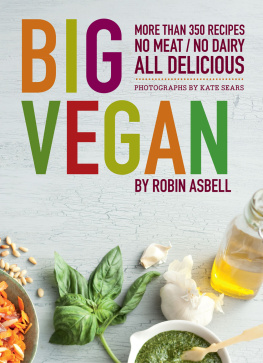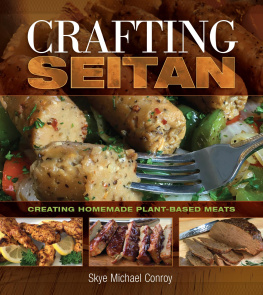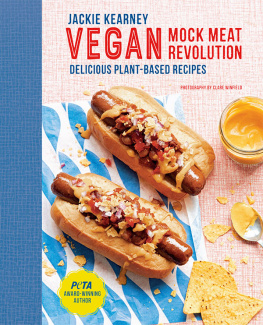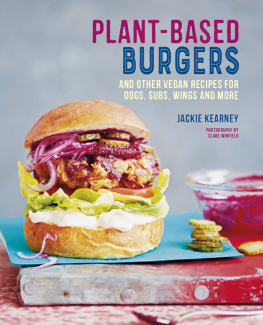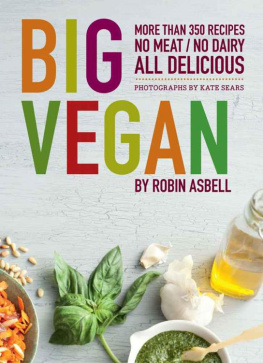Contents
Guide
Page List
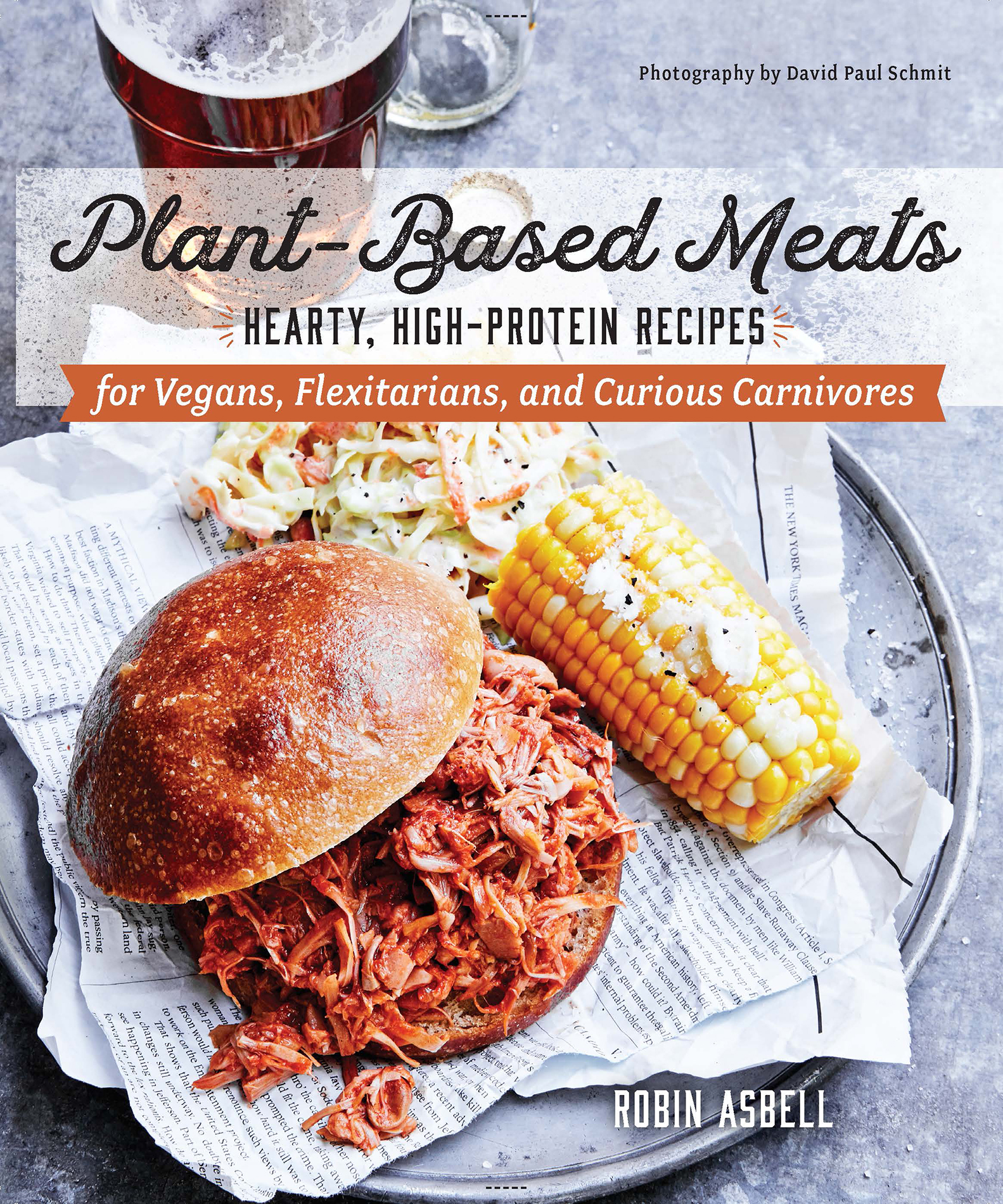


Creating these recipes was a labor of love. The world
will be a better place when we shift to a plant-based diet,
and we need farmers to make that happen.
I would like to dedicate this book to the farmers
who are doing it right. Nobody works harder.
............

Contents

The future is plant based.
Some of us saw it coming. As the global population expands and resources become ever more limited, a move toward eating more plants and less meat is inevitable. Even in the United States, where burgers and steaks are considered our birthright, people are realizing that the current consumption level of animal-based food is unsustainable. There just arent enough acres of land, or resources, or a genuine need to keep going at this pace. On top of that, the standard American diet has led to a litany of all-too-common health problems, many of which can be alleviated by eating more plants. Whether you want to try going meatless once a week, transition gradually with a flexitarian-style diet, or go vegan overnight is up to you.
You dont need meat. Luckily, many delicious plant-based, high-protein foods can take the place of meat on your plate. In my lifetime, Ive seen the medical community and nutrition professionals recommendations evolve beyond the old four basic food groups. Anyone who still insists that you cant get all you need for a healthy body without meat is hopelessly out of date. All those old chestnuts, like insisting that you cant get iron without eating a steak, or vitamin B-12 without chowing down on a burger, have been proven to be nonsense. Now that we know how to find those nutrients in plant-based foods, or easily supplement the few we cant, we dont really need meat. Likewise, if you just love meat and dont want to give it up, just know that youre eating it because you like it or for other personal reasons, not because you have to have it for a healthy body.
The biggest, most enduring myth is that you cant get protein without animal-based foods. Forget that. Protein is in everything from spinach to bananas. But if you are in the habit of eating concentrated protein sources, like burgers and chicken, this book will provide you with lots of tasty, protein-rich alternatives. Dont worry: youll stay full.
This cookbook is designed to make plant protein work for you and to cater to your tastes, cravings, and habits. Its all in fun, after allwe all know these mock meats are fakes, but if they make it easier for you to shift away from meat, my job is done. You hold in your hands a book full of recipes for making meats from plants, packed with all the meaty flavors and textures that you crave. These recipes are designed to help those who arent ready to give up sandwiches piled high with pastrami and salami or stir-fries made with chewy meats.
Eating meat is part of our culture, and for most people, a lifetime of enjoying char-grilled burgers and holiday hams has imbued those foods with emotional associations. Our food choices are very personal, and eating with others is one of the great joys in life. The foods in this book can serve as familiar, tasty alternatives to some of the meats in your diet, which may make it easier to reduce your meat consumption.
For so many people who go meatless, holidays like Thanksgiving just dont feel right without a centerpiece dish. Now you can make your own Turkey Roll with Stuffing () with homemade plant-based versions; once you get the mayo, tomato and lettuce on there, youll hardly notice a difference.

Theres a growing movement toward making ethical buying choices, whether theyre for slavery-free chocolate or cruelty-free cosmetics. Within that movement is the ethical vegan movement. By eating plant-based foods, ethical vegans are not participating in the animal-food industry. Ethical vegans are committed to preventing harm to animals and see the health benefits of their diet as a side benefit. You dont have to be a vegetarian to think about where your meat is coming from.
For most meat eaters, the industrialized meat production system has put a lot of distance between them and the lives and deaths of the animals they consume. Nobody wants to see the short, brutish lives and assembly-line deaths that are necessary to supply every burger or chicken fillet. But its happening, and anyone who eats mass-produced meat is supporting it. In the not-too-distant past, consuming meat meant facing the reality of it, up close and personal. These days, the vast majority of meat eaters buy meat thats wrapped in plastic and never come face to face with the sentient beings sacrificed for the meat-eating lifestyle.
Many meat lovers who have become educated about where their meat comes from have opted to purchase only ethically raised meat, from animals who have room to move and who consume a natural diet. Humanely raised meat is still a small sliver of the marketcurrent estimates vary from 3 to 6 percent of the total amount of meat sold in the United States, but it is growing. Because it costs more than conventional meats, consumers often opt to eat only small amounts of it and seek plant-based protein for the rest of their meals.
How Mock Meats Fit In
Mock meats have moved from a tiny segment of the market made just for vegetarians to a booming business. Savvy investors have funded research into all kinds of mock burgers, hoping to come up with the elusive burger recipe that will be indistinguishable from beef. Lab-grown muscle tissue and top-secret processes are being used to create truly realistic fakes. The mock meat market is not designed for vegetarians: its focused on making omnivores and meat lovers more comfortable with eating less meat, and its working.
A January 2017 survey by Mintel found that a third of its respondents bought meatless meats. According to the market research company MarketsandMarkets, the meat substitutes market is expected to reach $5.96 billion by 2022.
Of course, homemade mock meats are a great alternative to factory-made ones. Take a look at the ingredients list on a box of frozen veggie burgers at your local grocery store, and you might find some unpronounceable stuff in there. If you shop carefully, there are some clean meatless meats at the store, and the options grow every day.
But you really can make your own. All the recipes in this book are made with ingredients you can buy at a natural-foods grocery. If you dont live close to one, its often quite easy, and perhaps more economical, to order the ingredients used to make mock meats in bulk online. Its kind of like baking your own bread: you put in some time over the weekend and then have fresh meats to eat all week.


